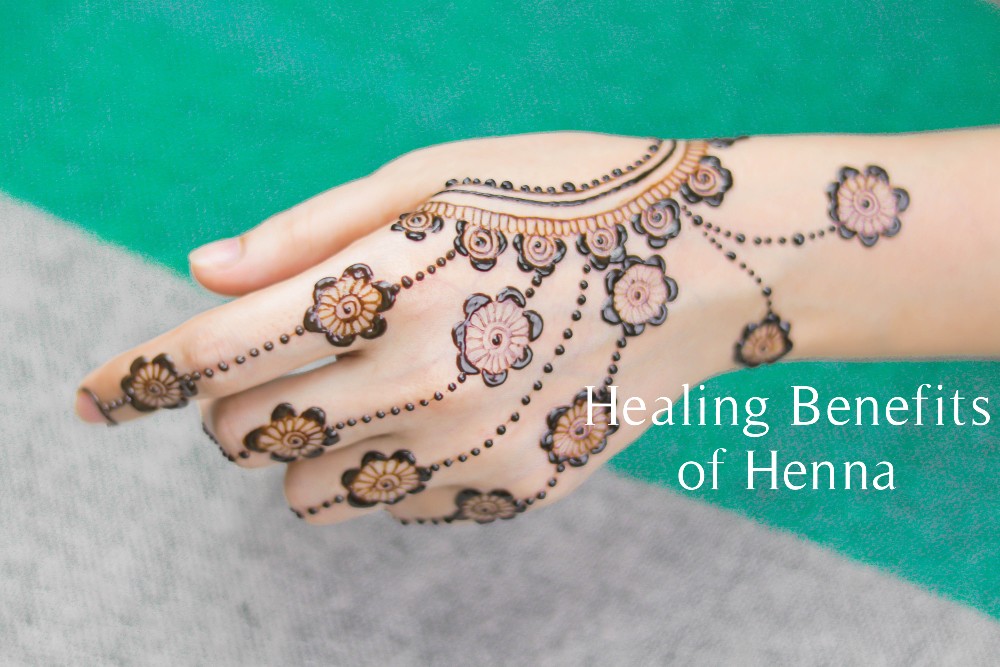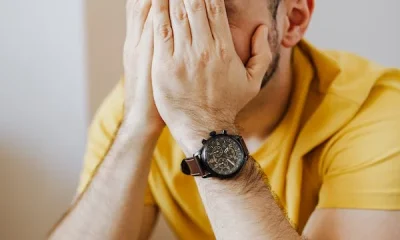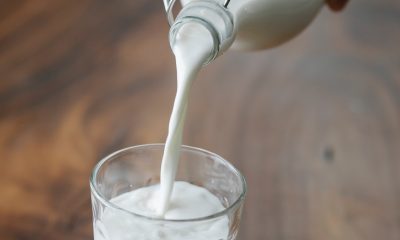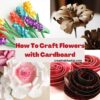Guest Post
The Surprising Healing Benefits of Henna
Studies have shown that henna can be used as an effective anti-inflammatory to ease arthritis pain, sore muscles, and headaches. Besides reducing inflammation and increasing mobility of sore joints and muscles, the cooling effect feels wonderful on the skin.
Henna is a name for a flowering plant known as Lawsonia inermis L. It is also often known as Mehndi. This plant has been used as a dye in various cultures such as the Middle East, Northern Africa, and India for many years. The leaves are dried and turned into a reddish-brown powder that’s used for dying clothes, hair, skin, and nails. The powder is mixed with acidic liquids and used as a dye or paint. Besides the cosmetic effect of henna, it’s also known to have numerous healing benefits and has also been used medicinally. Using henna this way is very popular in Ayurvedic medicine.
The Surprising Healing Benefits of Henna

Here are some unique ways you can use henna.
Reduces Inflammation & Fevers
When applied topically as an oil, henna has a cooling effect. Studies have shown that henna can be used as an effective anti-inflammatory to ease arthritis pain, sore muscles, and headaches. Besides reducing inflammation and increasing mobility of sore joints and muscles, the cooling effect feels wonderful on the skin. Applying henna on the hands and feet can bring your overall body temperature down. It’s also very useful to bring down fevers.
Treats Skin Conditions
Traditionally, henna has been used medicinally as a coagulant for open cuts and to also soothe burns and other skin conditions such as eczema or psoriasis. It creates a protective layer to keep bacteria out of any open wounds. Henna can also be used topically as an antiseptic for fungal and bacterial skin infections. The cooling effects of henna can also relieve pain associated with burns, rashes, and other skin irritants.
Hair Health
Henna is most commonly used as a hair dye. It’s quite effective at covering grey hair. While it has cosmetic benefits, it also improves overall hair health. When used on the hair, henna balances your hair’s pH level and can help seal the hair cuticle making it stronger and shinier. It’s also helpful in locking moisture, keeping the hair healthy and soft. The phytochemical in henna can promote hair growth and reduce hair fall. Henna has also been known to treat dandruff effectively.
Art Therapy
Henna can be made into beautiful intricate drawings on the body. Henna art or tattooing has been a part of many cultures and is commonly seen on brides or for special occasions. In modern times, henna is seen more commonly as self-expression and has become trendier with the younger generations.
Henna is a great outlet to practice art therapy. Creating art can be a positive way to explore and release emotions, cope with stress, boost self-esteem, and create self-awareness. If you’re experiencing any kind of emotional distress, art therapy can be a great outlet to improve your mental health. It may also be beneficial to speak to someone for added support. MyTherapist is an online counselling service that can match you with a licensed therapist that will provide you with advice and strategies on how to better your overall well-being.
Conclusion
Henna has been around for thousands of years and is most commonly known as a dye. However, there are countless benefits to using henna both cosmetically and medicinally. Using henna for healing benefits has been used in different cultures and among Ayurvedic practices. If you want to try some of the healing benefits of henna, it’s important to note that black henna can be dangerous as there is more potential for chemical burns and allergic reactions. Natural henna pure henna is extremely safe so be aware of where you get the henna from. Before trying anything new on your body, it’s important to check with your doctor and do a test patch first.
Disclaimer – This is a guest post & may contain paid links. Thank you for your support.
About Guest Post Author: Marie Miguel has been a writing and research expert for nearly a decade, covering a variety of health-related topics. Currently, she is contributing to the expansion and growth of a free online mental health resource with MyTherapist.com. With an interest and dedication to addressing stigmas associated with mental health, she continues to specifically target subjects related to anxiety and depression.



























